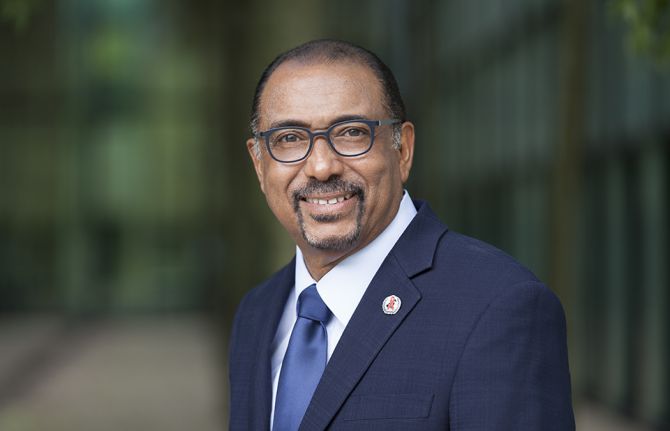

Press Statement
Message from the UNAIDS Executive Director on Zero Discrimination Day
01 March 2019 01 March 2019On 1 March, Zero Discrimination Day, we celebrate the advocacy and activism that brings the world closer to zero discrimination and the actions and laws that help to ensure that people can live with dignity.
My call this year is focused on changing discriminatory laws and practices that block people from accessing health and other life-saving services.
Laws should protect, not reject. Every person has an equal right to be treated with dignity and respect.
In 2019, I call on countries to support the Global Partnership for Action to Eliminate all Forms of HIV-Related Stigma and Discrimination, launched by the Global Network of People Living with HIV, UNAIDS, the United Nations Development Programme, UN Women and the UNAIDS Programme Coordinating Board nongovernmental organization delegation on 10 December 2018, Human Rights Day. Civil society organizations, networks of people living with HIV and key populations are leading with organizations in the United Nations system—the World Food Programme, the United Nations Development Programme, UN WOMEN, the International Labour Organization, the United Nations Educational, Scientific and Cultural Organization and the World Health Organization—to provide guidance to countries working to respond to stigma and discrimination.
The work of the global partnership will focus on six key settings—health-care settings, the workplace, the education system, the justice system, households and humanitarian and emergency settings.
Zero discrimination is essential to achieving universal health coverage and the Sustainable Development Goals. All over the world, people are unable to live with dignity because of laws and practices that discriminate. For example:
- At least 20 countries worldwide still impose travel restrictions on people living with HIV.
- In 29 countries women require the consent of their spouse or partner to access sexual and reproductive health services.
Laws must protect, not cause harm. All countries must carefully review their laws and policies to ensure equality and protection for all people, with no exceptions.
On Zero Discrimination Day, and every day, let’s act together to change discriminatory laws.
Michel Sidibé
Executive Director of UNAIDS
Under-Secretary-General of the United Nations
UNAIDS
The Joint United Nations Programme on HIV/AIDS (UNAIDS) leads and inspires the world to achieve its shared vision of zero new HIV infections, zero discrimination and zero AIDS-related deaths. UNAIDS unites the efforts of 11 UN organizations—UNHCR, UNICEF, WFP, UNDP, UNFPA, UNODC, UN Women, ILO, UNESCO, WHO and the World Bank—and works closely with global and national partners towards ending the AIDS epidemic by 2030 as part of the Sustainable Development Goals. Learn more at unaids.org and connect with us on Facebook, Twitter, Instagram and YouTube.
Contact
UNAIDS GenevaAnne-Claire Guichard
tel. +41 22 791 2321
guicharda@unaids.org
UNAIDS Media
tel. +41 22 791 42 37
communications@unaids.org
Press centre
Download the printable version (PDF)
